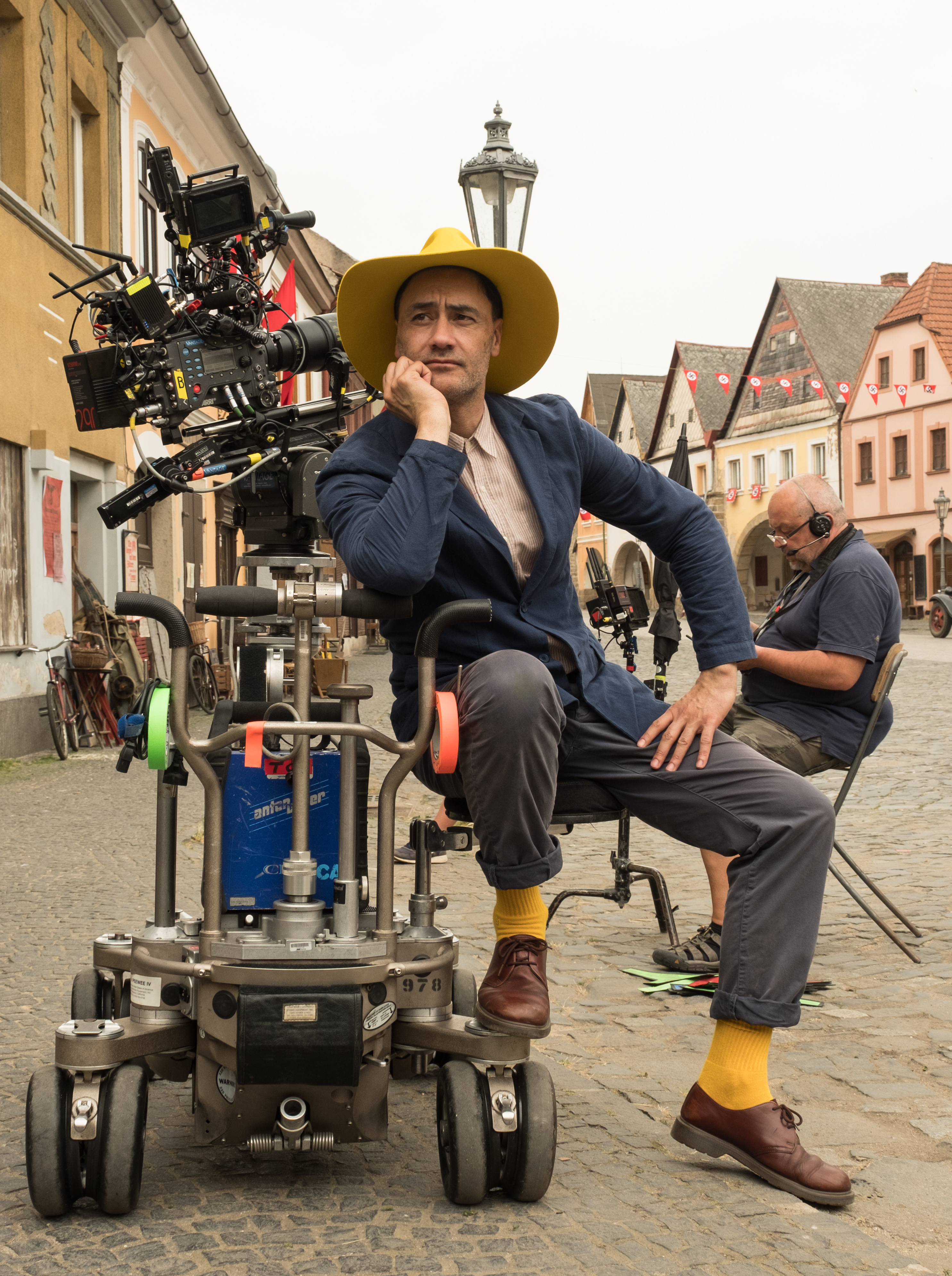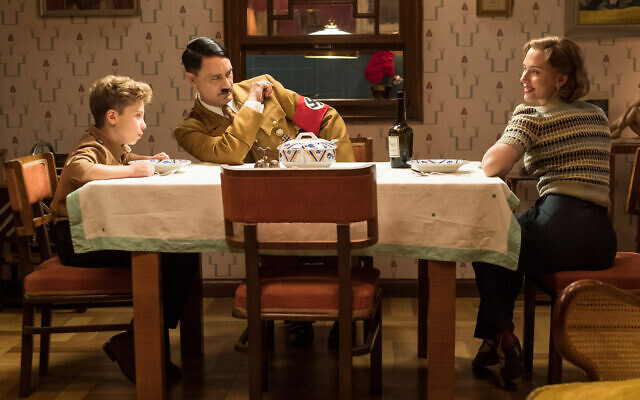‘Jojo Rabbit’ Is a Unique World War II Drama
The new film, “Jojo Rabbit,” which is now playing in a number of Atlanta theaters, works hard to create a likable production in the least likely of places.
The new film, “Jojo Rabbit,” which is now playing in a number of Atlanta theaters, works hard to create a likable production in the least likely of places, Nazi Germany during the waning months of World War II.
The film was produced, written, and directed by Taika Waititi, who grew up in New Zealand with a father who’s a Maori tribesman and a mother whose family were Jews from Russia.
He has described himself as a Polynesian Jew, who has sometimes gone by his name from the Jewish side of the family, Taika David Cohen. He scored a big hit in “Thor: Ragnarok” in 2017, which grossed $854 million worldwide and made it possible to do this film.
His main character in “Jojo Rabbit” is 10-year-old Johannes Betzler, also known as Jojo Rabbit, a sweet, innocent charmer who strives mightily to be a good Nazi and a committed member of the local Hitler Youth group. Blind hatred and love of violence doesn’t come easy to the young hero.
Despite a strong performance, it’s clear from the outset that the actor who plays the young Jojo, Roman Griffith Davis, looks less like a hardened Nazi and more like a fresh-faced member of the Vienna Boys Choir.
It’s evident that during his frequent moments of weakness and indecision he needs a strong personal coach, someone he can conjure out of his youthful imagination at will, that knows the difference between a real Nazi and a young and ineffectual wannabe.

What he gets is the best coach an aspiring Nazi could want, an imaginary likeness of der Fuhrer himself, Adolf Hitler, who is portrayed by the director, Waititi. He was said to have been embarrassed directing portions of the film while still in costume for his role as the German dictator. Initially seeing Hitler on the screen in this film might, for some, be unsettling and disturbing.
But the Hitler of this young boy’s imagination is not the maniacal, wild-eyed mass murderer of history. He’s a cheery and almost loveable buffoon that could have come straight out of the loony 1960s sit-com, “Hogan’s Heroes.” He’s got the same toothbrush moustache, he fills out his properly tailored Nazi tunic, and there’s an occasional gesture that could be genuine, but that’s as close as he comes to the original. This one, unlike his real counterpart, is played strictly for laughs.
A complicating element in the story is the boy’s mother, played by the Jewish American actress, Scarlett Johansson. She is an anti-Nazi hiding a teenaged Jewish girl in a secret crawl space in the family home. The young girl is an insouciant, self-confident and attractive young woman with whom the young boy slowly develops a relationship, particularly after the death of his mother.
Out of these disparate and unlikely elements, the director has woven a generally appealing story with a strong cast. At this year’s prestigious Toronto International Film Festival, it won the People’s Choice award. It has had several strong opening weeks at the box office.
What’s missing from this engaging and entertaining movie is a deeper, more provocative message. For all its technical sheen and fresh style, “Jojo Rabbit” seems oddly empty.
The motivation to make the film came originally from Waititi’s Jewish mother in New Zealand, who had read the story in its original form. It was initially the critically successful novel, “Caging Skies,” by the America writer Christine Leunens. In the novel, Jojo is a mature, teenaged Nazi. He has none of the young charm of his counterpart in the film and he doesn’t need a comic Hitler to motivate him.
His discovery of the young Jewish girl that his family has been secretly hiding, even from him, creates a sense of danger, suspense and conflict that is never fully resolved.
But all that is passed over in the film version, “Jojo Rabbit,” in favor of the tale of a 10-year-old who brushes up against a Hitler of his imagination and a world teetering on collapse and emerges, finally, with a smile on his face.




comments